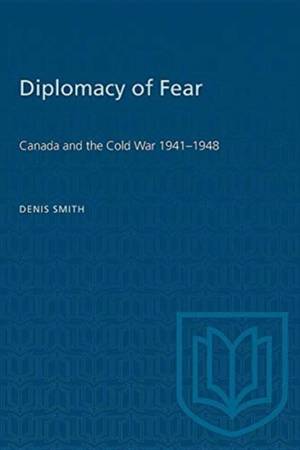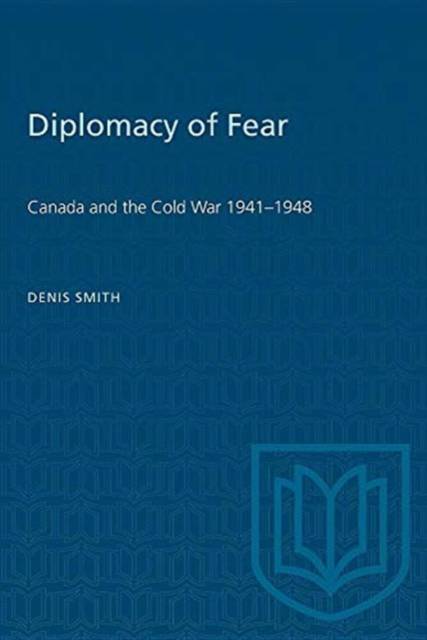
- Retrait gratuit dans votre magasin Club
- 7.000.000 titres dans notre catalogue
- Payer en toute sécurité
- Toujours un magasin près de chez vous
- Retrait gratuit dans votre magasin Club
- 7.000.0000 titres dans notre catalogue
- Payer en toute sécurité
- Toujours un magasin près de chez vous
Description
The wartime alliance of the Soviet Union with Britain, the United States, Canada, and their allies very quickly unravelled after the war; in its place rose up the East-West enmity that remains today. Denis Smith here tells the story of how mutual conflict and misunderstanding led to the disintegration of the alliance with the Soviet Union, and of how Canada chose its place as a secondary member of the emerging American alliance.
Smith draws on Canadian, British, and American historical archives of the years from the German invasion of Russia to the establishment of NATO. He emphasizes the unusual efforts that were made to bring the United States into a permanent international role, the West's tendency to see Russian post-war actions according to the model of Nazi Germany, and the extent to which fear and panic governed Western policy as it forze into the patterns of the cold War in 1947 and 1948. A clear picture emerges of the relationship between the work of officials in Canada's Department of External Affairs and the policies adopted by the Canadian government.
Smith's clam reassessment of post-war history sheds considerable light on the roots of East-West relations in the later 1980s, and should assist current efforts to see these relations with renewed realism and good sense.
Spécifications
Parties prenantes
- Auteur(s) :
- Editeur:
Contenu
- Nombre de pages :
- 304
- Langue:
- Anglais
- Collection :
Caractéristiques
- EAN:
- 9780802066848
- Date de parution :
- 01-04-88
- Format:
- Livre broché
- Format numérique:
- Trade paperback (VS)
- Dimensions :
- 156 mm x 234 mm
- Poids :
- 421 g

Les avis
Nous publions uniquement les avis qui respectent les conditions requises. Consultez nos conditions pour les avis.






